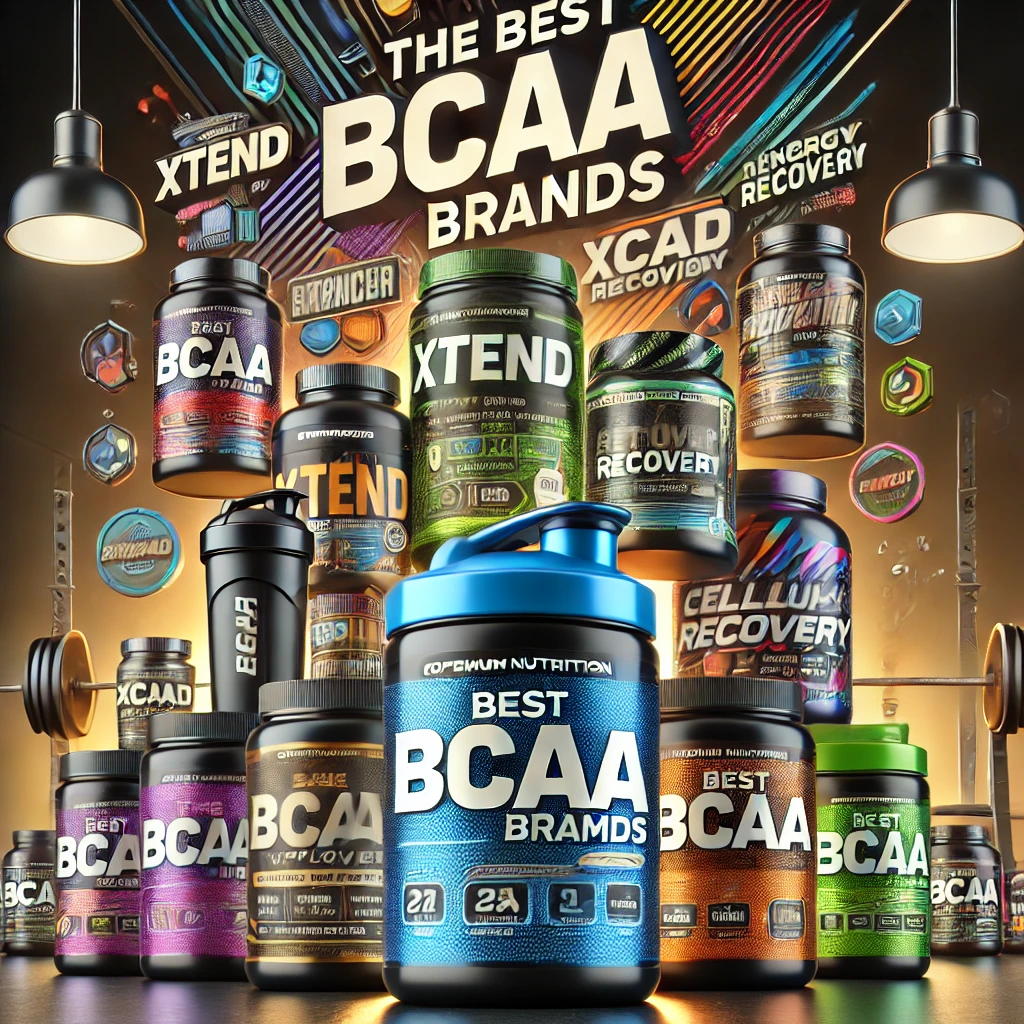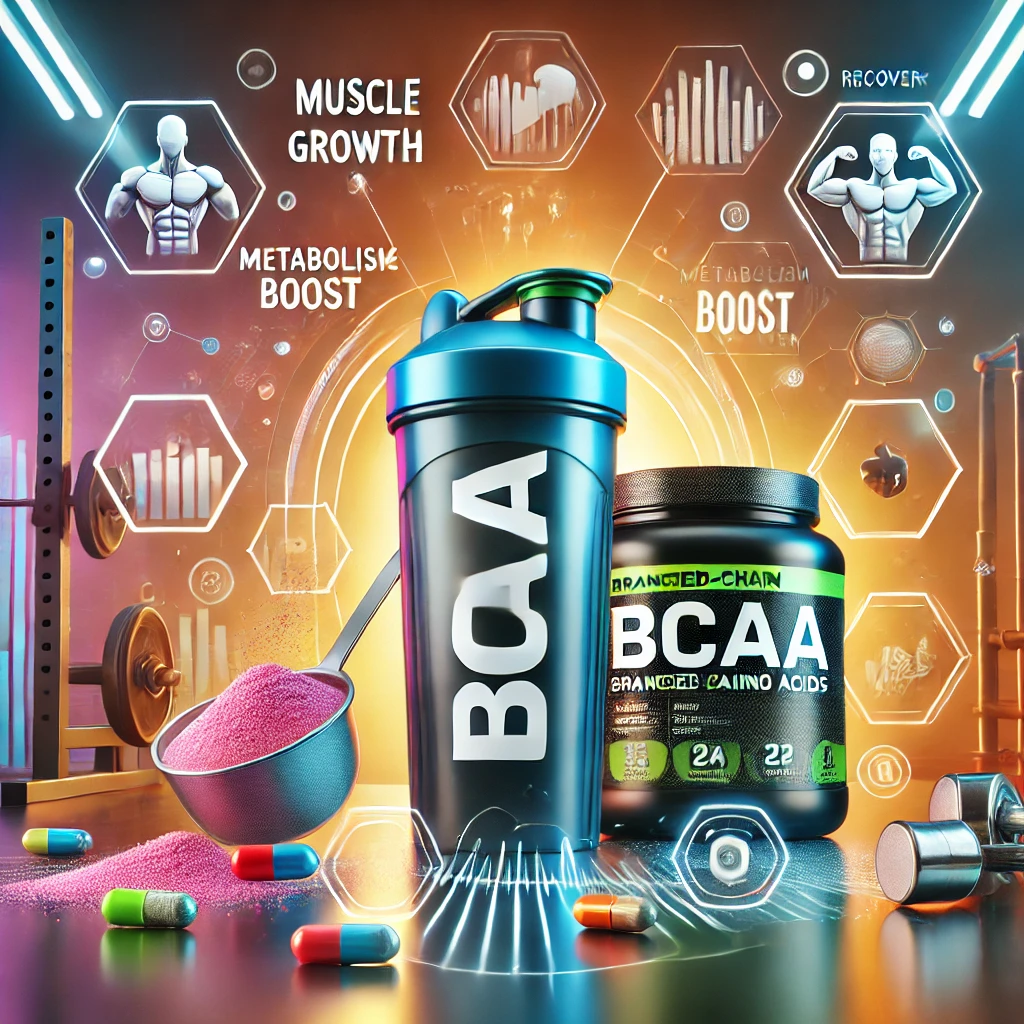BCAAs (Branched-Chain Amino Acids) are among the most popular supplements in the fitness and health industry. They are essential for muscle recovery, energy production, and overall performance. But with so many brands and types available, selecting the right one can be challenging. This comprehensive guide will help you understand BCAAs, their benefits, what to look for in a high-quality brand, and how to use them effectively.
What Are BCAAs?
BCAAs consist of three essential amino acids: leucine, isoleucine, and valine. These amino acids are termed “essential” because the body cannot produce them; they must be obtained through diet or supplementation. Together, they make up a significant portion of the body’s amino acid pool and play a critical role in muscle protein synthesis, energy production, and recovery.
Components of BCAAs
- Leucine: Known as the key player in muscle protein synthesis, leucine triggers the mTOR pathway, which is essential for building muscle.
- Isoleucine: Supports energy production and glucose metabolism, ensuring the muscles have the fuel they need during exercise.
- Valine: Helps prevent muscle fatigue by supporting the central nervous system and aiding tissue repair.
What Are BCAAs Used For?
BCAAs are versatile and serve several purposes:
- Boosting Muscle Growth: Leucine, in particular, stimulates muscle protein synthesis, helping to build lean muscle mass.
- Enhancing Recovery: BCAAs reduce muscle soreness and speed up recovery by decreasing muscle protein breakdown.
- Preventing Muscle Wasting: During prolonged or intense exercise, BCAAs act as an energy source, reducing muscle degradation.
- Improving Workout Performance: They can delay fatigue by reducing tryptophan uptake in the brain, which leads to lower serotonin production.
- Supporting Metabolism: BCAAs enhance fat oxidation and improve glucose uptake, aiding metabolic processes.

How Do BCAAs Help Boost Metabolism?
BCAAs play a significant role in metabolic regulation:
- Fat Oxidation: BCAAs, especially leucine, stimulate enzymes involved in fat breakdown, promoting energy production.
- Improved Insulin Sensitivity: Isoleucine improves glucose metabolism, helping maintain stable blood sugar levels.
- Energy Source: During calorie deficits or intense workouts, BCAAs are metabolized to provide energy, sparing muscle tissue.
Do BCAAs Promote Muscle Growth?
Yes, BCAAs are vital for muscle growth. Leucine activates the mTOR pathway, a critical process in muscle protein synthesis. Additionally, BCAAs help repair muscle damage caused by exercise, laying the foundation for stronger and larger muscles. Regular supplementation, paired with resistance training, can lead to noticeable improvements in muscle mass and strength.
What to Look for in a BCAA Supplement
With countless options available, choosing the right BCAA supplement can be daunting. Here are key factors to consider:
1. Optimal Ratio
- The standard and most effective ratio is 2:1:1 (leucine:isoleucine:valine).
- Higher leucine concentrations may seem appealing but can be less effective without adequate isoleucine and valine.
2. Quality of Ingredients
- Look for supplements with fermented BCAAs derived from plant-based sources for better purity.
- Avoid artificial flavors, sweeteners, and unnecessary fillers.
3. Certifications
- Ensure the brand is certified by third-party testing agencies such as NSF or Informed-Sport to guarantee quality and safety.
4. Solubility and Taste
- Poor solubility can indicate lower quality. Choose a product that mixes easily and has a pleasant taste.
5. Additional Ingredients
- Some BCAA supplements include added electrolytes, vitamins, or other amino acids to enhance performance and recovery.
How to Use BCAAs Effectively
When to Take BCAAs
- Pre-Workout: Provides energy and reduces muscle breakdown.
- Intra-Workout: Maintains endurance and prevents fatigue during long sessions.
- Post-Workout: Aids recovery and promotes muscle repair.
Dosage Recommendations
- General Use: 5-10 grams per serving.
- Athletes: Up to 20 grams per day, divided into multiple servings.
How to Mix BCAAs
- Mix the recommended dosage with 8-12 ounces of water or your preferred beverage.
- Consume immediately after mixing to avoid sedimentation.
The Best BCAA Brands: What Sets Them Apart

1. Xtend by Scivation
- Ratio: 2:1:1
- Features: Includes electrolytes and glutamine for enhanced recovery.
- Flavors: Variety of great-tasting options.
2. Optimum Nutrition BCAA Powder
- Ratio: 2:1:1
- Features: Trusted brand with simple, clean ingredients.
- Solubility: Excellent mixing properties.
3. Cellucor Alpha Amino
- Ratio: 2:1:1
- Features: Includes hydration blend with coconut water powder and electrolytes.
- Suitable For: Those looking for additional hydration benefits.
4. Evlution Nutrition BCAA Energy
- Ratio: 2:1:1
- Features: Contains caffeine and green tea extract for energy.
- Best For: Pre-workout and energy boost.
Are BCAAs Safe?
BCAAs are generally safe for healthy individuals when taken within recommended dosages. However, excessive intake can lead to side effects like nausea, headaches, or gastrointestinal discomfort. If you have any underlying health conditions, consult a healthcare professional before starting supplementation.
Natural Sources of BCAAs
While supplements are convenient, BCAAs can also be obtained from whole foods:
- Meat and Poultry: Chicken, beef, and turkey.
- Fish: Salmon and tuna.
- Dairy: Milk, yogurt, and cheese.
- Eggs: High in leucine.
- Plant-Based Options: Lentils, quinoa, and soy products.
Common Myths About BCAAs
1. BCAAs Are Only for Bodybuilders
- Fact: While bodybuilders benefit greatly, BCAAs are helpful for anyone engaging in physical activity, from runners to casual gym-goers.
2. More Is Always Better
- Fact: Excessive BCAA intake can lead to imbalances and side effects. Stick to recommended dosages.
3. BCAAs Alone Can Build Muscle
- Fact: BCAAs support muscle growth but require a balanced diet, adequate protein intake, and regular exercise to maximize results.
Conclusion
BCAAs are a powerful tool for enhancing muscle growth, recovery, and overall performance. Choosing the right brand involves assessing the ratio, quality, and additional features of the supplement. By incorporating BCAAs into your fitness routine and maintaining a balanced diet, you can optimize your workout results and achieve your health goals. Remember, consistency is key, and supplements should complement, not replace, a well-rounded nutrition plan.
Whether you’re a seasoned athlete or a fitness enthusiast, understanding and utilizing BCAAs effectively can elevate your fitness journey to new heights.










